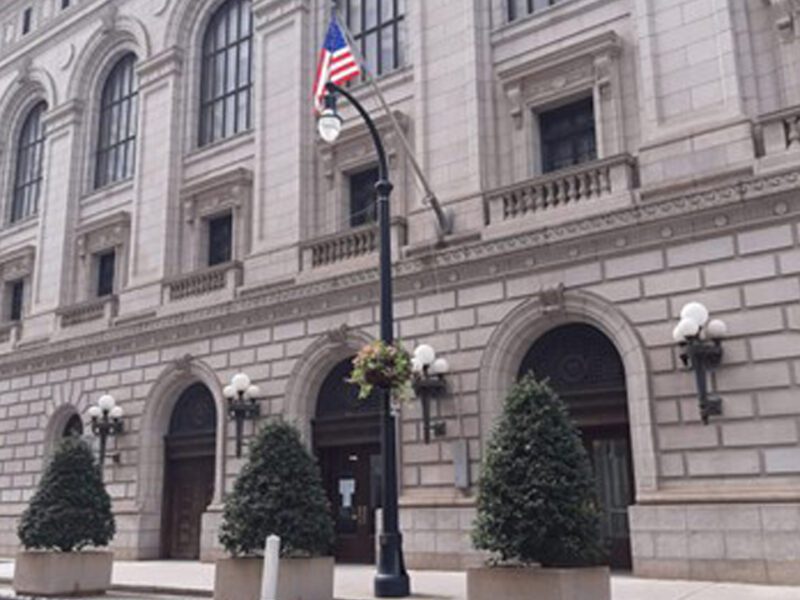Florida Public Charter Schools See Growth Amidst Pandemic
Florida Charter School Alliance | By Debbie Veney and Drew Jacobs, National Alliance for Public Charter Schools | September 22, 2021
Florida experienced a 3% increase in public charter school enrollment
According to state-level data analyzed by the National Alliance for Public Charter Schools in a new report, Voting with Their Feet: A State-level Analysis of Public Charter School and District Public School Enrollment Trends, for the 2020-21 school year, Florida’s public charter school enrollment grew by 3 percent or 10,900 students. There are currently more than 341,900 students attending a public charter school in Florida.
Nationally, enrollment in public charter schools increased by 7%, or nearly 240,000 students, from the 2019-20 school year to the 2020-21 school year. By contrast, district-run public school enrollment dropped by 1.4 million students, the largest decrease in more than a decade. Charter schools in Florida were the only public schools to grow during the first full school year of the pandemic.
“Charter schools are a vital part of Florida system of public education,” said Lynn Norman-Teck, Executive Director of the Florida Charter School Alliance and charter school parent. “In 25 years since the first charters opened, charter schools have improved access to quality education options (especially in neighborhoods of need), raised student achievement and graduation rates (especially among minority students), and guaranteed that all families have a fair opportunity to choose a high-quality school regardless of their zip code. The enrollment growth is a testament to the value parents place on securing a quality educational program for their children. Florida parents are savvy education consumers and will seek the best school option that can address their child’s needs and talents.”
Families must make an active decision to enroll a student in one of these unique public schools. In 2020, the COVID pandemic forced schools of all types to close their doors and switch to remote learning. Many families were dissatisfied with the quality of learning options available to their children. And that dissatisfaction led them to learn more about the other educational options available. For many families, charter schools’ nimbleness and flexibility made them the right public school choice.
A Florida Department of Education charter school performance report released in March 2019 shows that students in charter schools outperformed their peers attending district-run schools in nearly every category. The statutorily mandated report — Student Achievement in Florida’s Charter Schools: A Comparison of the Performance of Charter School Students with Traditional Public School Students — is based on more than 4.2 million test scores and makes 195 comparisons of academic success between students attending charter schools and students attending traditional public schools.
Highlights of the FDOE report include:
- In 63 of the 77 (82%) comparisons, students enrolled in charter schools demonstrated higher rates of grade level performance than their peers in traditional public school.
- The report concluded that the achievement gap was lower for charter school students in 19 of 22 (86%) comparisons. The achievement gap component included English Language Arts, Mathematics, Science and Social Studies.
- When comparing learning gains, the percentage of students making learning gains was higher in charter schools in 88 of the 96 (91.7%) comparisons.
- In comparisons of achievement and learning gains, African-American students in charter schools performed better than African-American students in district-managed schools in 89% of the comparisons.
- In comparisons of achievement and learning gains, Hispanic students in charter schools performed better than Hispanic students in district-managed schools in 93% of the comparisons.
- In comparisons of achievement and learning gains, students eligible for free/reduced lunch in charter schools performed better than students eligible for free/reduced lunch in district-managed schools in 93% of the comparisons.
“Charter school enrollment grew in nearly every state – and this trend is not slowing down. Families are voting with their feet as they seek out more and different public school options for their children,” said Nina Rees, President & CEO of the National Alliance for Public Charter Schools. “It is wonderful to see the data prove what I hear from families of charter school students every day: Public charter schools are answering their call.” Rees continued, “There is a strong and growing demand for charter schools. In state after state, families are enrolling their children in these innovative, student-centered public schools. Charter schools are an important part of the public education ecosystem. Without them, overall public school enrollment declines would have been far worse, and many families would have suffered even more during this time of unprecedented challenge.”
About Charter Schools
Charter schools are public schools, free, and open to all. They do not have selective enrollment processes. Charter schools are publicly funded by local, state, and federal tax dollars based on enrollment, like other public schools, and are held to the same academic standards that all public schools are required to meet. In addition to operating as public schools, charter schools are also responsible for adhering to the promises laid out in their charter agreement—another layer of accountability. The charter school’s authorizer is responsible for enforcing these rules. If they don’t, the charter school will no longer serve students and families. All charter schools are held directly accountable by their families and communities, in addition to state and federal public school standards.
About FCSA
The voice of the charter school movement in Florida, the Florida Charter School Alliance (FCSA) is a non-profit member-driven organization, our mission is to improve student achievement and promote parental choice by advocating for, supporting, defending, and collaborating with public charter schools. Our members run the gamut of choice educational programs – ranging from urban to rural campuses, from programs specializing in exceptional students or drop-off prevention to unique classical curriculum, and college-prep programs in high-need areas. Yet all our member schools have a common thread – a steadfast commitment to raising the bar on public education and providing a quality education option to the children and communities they serve.
###






